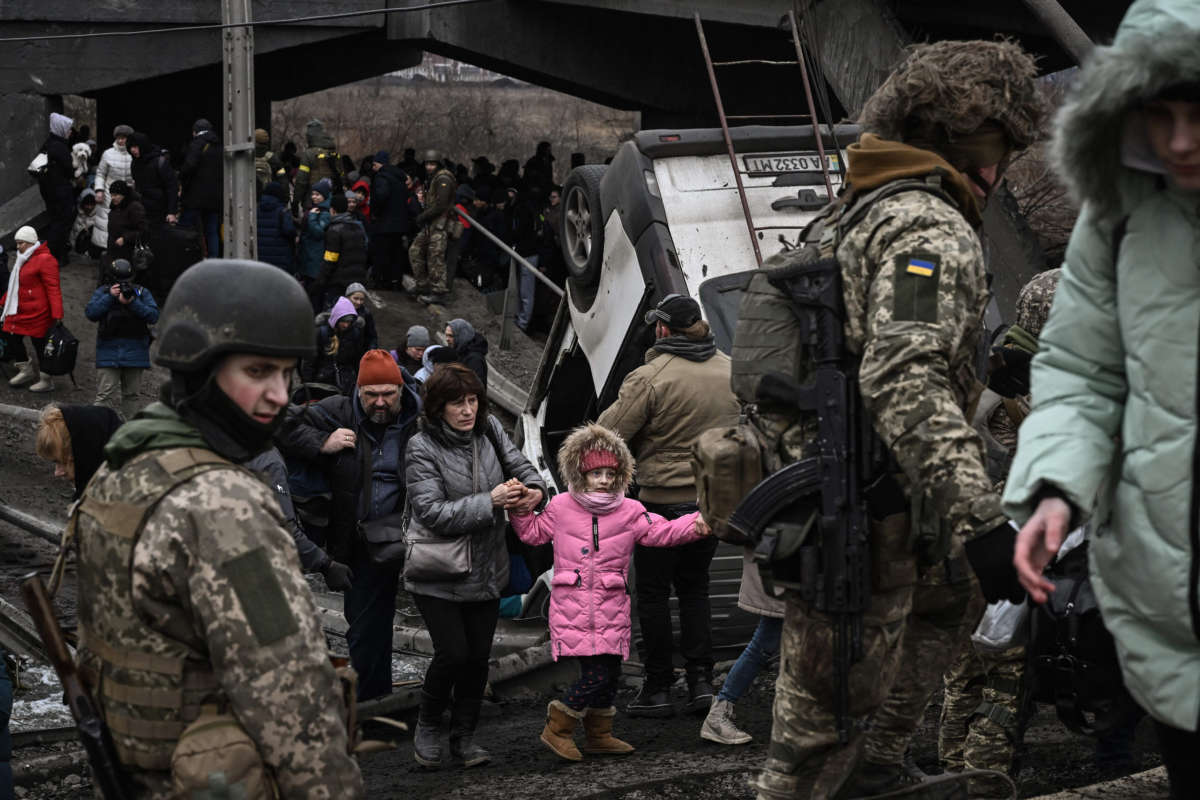As of Thursday, more than 3.1 million Ukrainian refugees have left the country since the Russian invasion ordered by President Vladimir Putin began, according to the United Nations Refugee Agency.
Most refugees have fled the country to Poland, but large numbers of Ukrainians have also sought refuge from the conflict in Romania, Moldova, Hungary and Slovakia.
Children make up almost half of all the refugees counted, the agency overseeing the refugee crisis said. More than 1.5 million children have left Ukraine since February 24, the UN said, amounting to around 75,000 kids fleeing the country daily on average.
“Every single minute, 55 children have fled their country. That is, a Ukrainian child has become a refugee almost every single second since the start of the war,” UNICEF spokesperson James Elder noted.
Other UN officials recognized the large number of refugees leaving Ukraine.
“Today we have passed another terrible milestone: three million refugees have fled from Ukraine,” Filippo Grandi, UN High Commissioner for Refugees, tweeted earlier this week. “The war has to stop. Now.”
“The people of Ukraine desperately need peace,” UN Secretary General António Guterres said on Wednesday. “And the people around the world demand it. Russia must stop this war now.”
In addition to the 3.1 million who have left the country, there are an estimated 2 million Ukrainians who have been internally displaced. The UN is working “to ensure safe passage from besieged areas, and to provide aid where security permits,” Guterres said in a separate statement.
Still, as of Monday, only around 600,000 Ukrainian refugees have received some form of aid from the UN. To increase that number, Guterres announced that the UN would release $40 million from the organization’s Central Emergency Response Fund.
The international community’s response to the refugee crisis has generally been positive, with several neighboring nations welcoming Ukrainians at their borders. In the United States, politicians from all political stripes have expressed the need to help and welcome Ukrainian refugees, leading some to point out the disparity in the treatment of refugees from Ukraine and from the Global South.
“How the world treats Ukraine and Ukrainian refugees should be how we are treating all refugees in the United States,” Rep. Alexandria Ocasio-Cortez (D-New York) said earlier this month, “especially when you look at such stark juxtapositions where so many of the factors are in common.”
Refugee aid workers from around the world have also noted the hypocrisy in how different peoples have been treated.
“The situation is very different,” compared to previous years, Warsaw-based human rights lawyer Marta Górczyńska said to Al Jazeera. In 2021, for instance, while trying to help Iraqi refugees enter Poland, “you had to deal with the hostility from the authorities, harassing and intimidating you, telling you that actually, it’s not legal to help people who are crossing the border from Belarus to Poland.”
“There was a state of emergency introduced and a ban of entry to the border area, which meant that no humanitarian organizations, human rights organizations, or even journalists were allowed to enter,” Górczyńska added. “[Now], the Polish authorities [are] welcoming refugees fleeing Ukraine with open arms and providing them with assistance.”
The refugee crisis is also highlighting hypocrisy and racism in a different way: nonwhite refugees from Ukraine say they’re being treated much differently than their white counterparts. African students attempting to flee Ukraine noted that white residents got preferential treatment as they crossed the Ukraine border, CBS News reported.
“Mostly they would, they would consider White people first. White people first, Indian people, Arabic people before Black people,” a student from Ghana, Ethel Ansaeh Otto, said.
“We went to the train station and they will not let us in,” said Selma El Alaui, a student from Morocco. “And when they did let us in, they were like, ‘You have to give us money because this is, this is not for free for you because you are foreign. This is not free for you.”
Join us in defending the truth before it’s too late
The future of independent journalism is uncertain, and the consequences of losing it are too grave to ignore. To ensure Truthout remains safe, strong, and free, we need to raise $43,000 in the next 6 days. Every dollar raised goes directly toward the costs of producing news you can trust.
Please give what you can — because by supporting us with a tax-deductible donation, you’re not just preserving a source of news, you’re helping to safeguard what’s left of our democracy.
